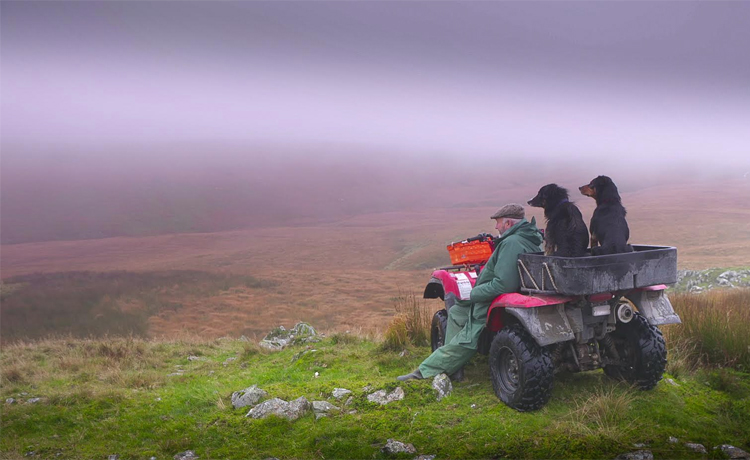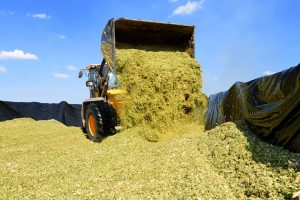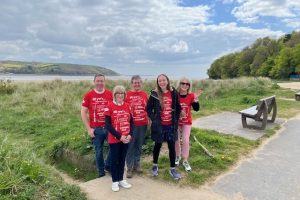THE CAMBRIAN MOUNTAINS, known as the backbone of Wales, is one of the country’s most secluded areas.
Described by the nineteenth-century English writer JH Cliffe as part of the ‘green desert of Wales’, stretching east across Mid Wales to the A470 and Rhaedr, south towards Builth Wells, west to Pumpsaint, and northwards to Llangurig, including the reservoirs of Nant y Moch and Llyn Clywedog.
In Drych: Hel y Mynydd, on S4C on Sunday, January 12 at 9.00 pm, we get to know some of the farmers and shepherds in this extraordinary area as they continue to round-up sheep in the traditional way on foot and on horseback – a tradition which is rapidly dying out.
One of those who continues the tradition is Glyndwr, the head shepherd for the Cwm Elan estate, who farms Claerwen with his wife Wendy: “I help to round-up and exchange sheep with neighbours. There aren’t many of us left who can round-up the sheep in a traditional way. You have to have a dog here or you might as well stay at home. Life is hectic here in the middle of summer as we round-up every day. There isn’t a single fence between me and my neighbours – to me, that’s a great way to live.”
“When you’re rounding-up you are in complete solitude. There isn’t a lot of this rounding-up business going on any longer, but we continue to do it here and it works here – and if it works, there’s no need to change it!”
The area has become a target for a number of English organisations who want to ‘rewild’ a landscape which exists only through thousands of years of human interaction and transform it into their idea of what Wales should look like.
Those schemes have met stiff resistance and one, in particular, Summit to the Sea, has managed to alienate a large number of farmers who would be affected by a variety of crackpot schemes that would force them off the land.
It becomes obvious during the programme that farmers on the open mountain are dependent on each other and offer help by rounding-up each other’s sheep.
We also meet Erwyd, an experienced shepherd from Ponterwyd: “While walking the mountains, a person gets to see the wonders of nature, this is what I call paradise. I feel a part of the place – it is completely unique.”
A reservoir was built in the Elan Valley in 1970 to supply water to cities in the midlands of England. Because of the reservoir, the landscape without fences has survived on the Cwm Elan estate and the farms all belong to the Cwm Elan Trust.
Clive, who farms at Hirnant in the Elan Valley adds: “There are no rules here, no-one makes money or loses money, everybody just helps one another. This must be one of the few places where if the old boys came back, they would show us a thing or two.”
Another who helps the crew is Gwyndaf – neighbour and shearer:
“The country folk think that the mountain boys don’t do anything, but it’s amazing what hard work it is. I can’t see there being any sheep left on the mountain in a few years.”
Following a day of rounding up, comes a day of shearing.
“Shearing day has always been an important day in the mountains’ calendar with the mountain community coming together. It’s one of those jobs that have to be done, but I love shearing.
I would shear every day of the year if I could!”
















